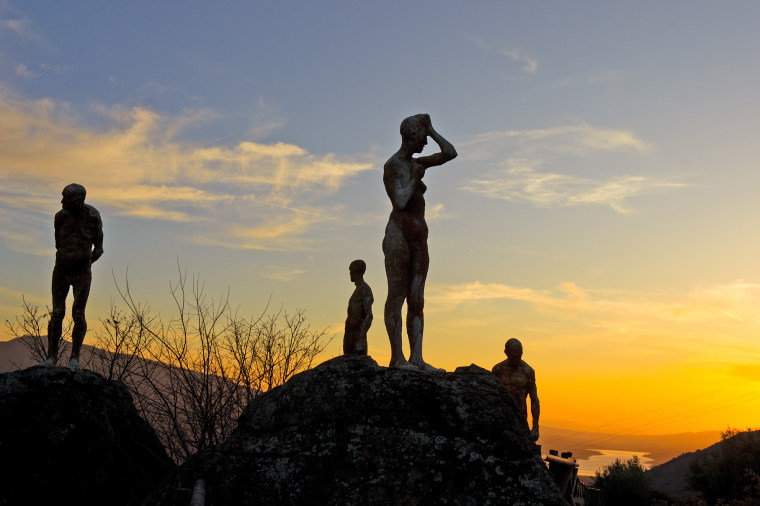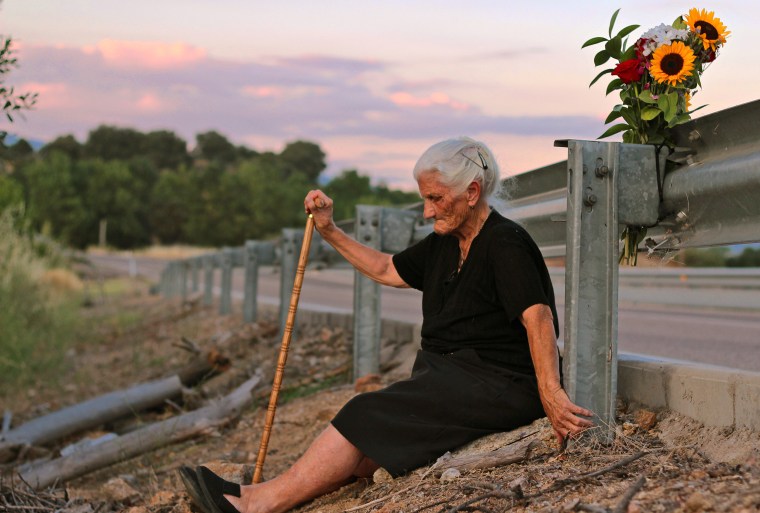Parents often teach their children to remember their past. And this lesson resonates deeply with a group of Spanish victims and survivors who traveled 7,000 miles from Spain to Argentina to seek justice for them and their families.
The award-winning documentary “The Silence of Others,” which kicks off a nationwide tour at the Film Forum in New York on Wednesday, tells the story of thousands of people who after more than 40 years of democracy in Spain still live day-to-day with the relentless memories of their family’s rapists, kidnappers and murderers being protected by amnesty.
And in more recent cases — as the documentary shows — some victims are also stuck living just a few blocks away from their torturers.
Two years after Spain’s military dictator Francisco Franco died in 1975, an amnesty law was passed that said none of the crimes that took place during the four decades of his rule would ever be prosecuted. The documentary explains that this amnesty and pact of silence has perpetuated a multigenerational nightmare for victims and survivors who are legally blocked from pursuing justice.
“You have more than 100,000 bodies in mass graves that have never been exhumed even though families are fighting for the rights to give their loved ones a dignified burial,” co-filmmaker Robert Bahar told NBC News. “You have the unresolved cases of children who are believed to have been stolen at birth, and their parents were told that they had died. So you have tens of thousands of families who are searching for the truth in 2019 and don’t have official channels to help them.”

“The Silence of Others” follows a group of victims and survivors who, unable to prosecute their crimes in Spain, travel to Argentina with the hope that a judge could apply the principle of universal jurisdiction to open an investigation into these crimes.
Bahar explained that universal jurisdiction is an international legal principle that says that crimes against humanity and other grave crimes are so important to the international community that judges in other countries can pursue them.
Universal jurisdiction became famous when a Spanish judge, Baltasar Garzón, indicted Chilean dictator Augusto Pinochet during a visit to London. And even though Pinochet ultimately was not extradited to Spain, human rights advocates say this legal action made other investigations possible.
But while Spain was a pioneer in using universal jurisdiction for human rights crimes in Latin America, a judge in Argentina could now be instrumental in opening an investigation for crimes committed during the Franco dictatorship.
“So it really is a reversal,” co-filmmaker Almudena Carracedo told NBC News. “After Spain sought the extradition of an Argentinean military junta leader, now an Argentinean judge is trying to investigate the crimes of Spain from Argentina. And thanks to the pressure of this lawsuit, there are other cases being presented in Spanish courts with the hope of making it to the Supreme Court and challenging the amnesty law.”
Bahar and Carracedo explained that the title of the film comes from Dulce Chacón’s historic novel “La voz dormida” (“The Silent Voice”), which describes the silence that was imposed by others on those who had been destroyed by the Spanish Civil War and Franco’s military dictatorship. And now, after four decades of democracy, the co-filmmakers hope that Spain will finally break its silence to talk about its past.
“One thing we wanted to do with the film is put up a mirror to the audience and say look, this past is not so past. It’s the present. And unless you address it, the past will keep coming back,” Carracedo said.
FOLLOW NBC LATINO ON FACEBOOK, TWITTER AND INSTAGRAM.
